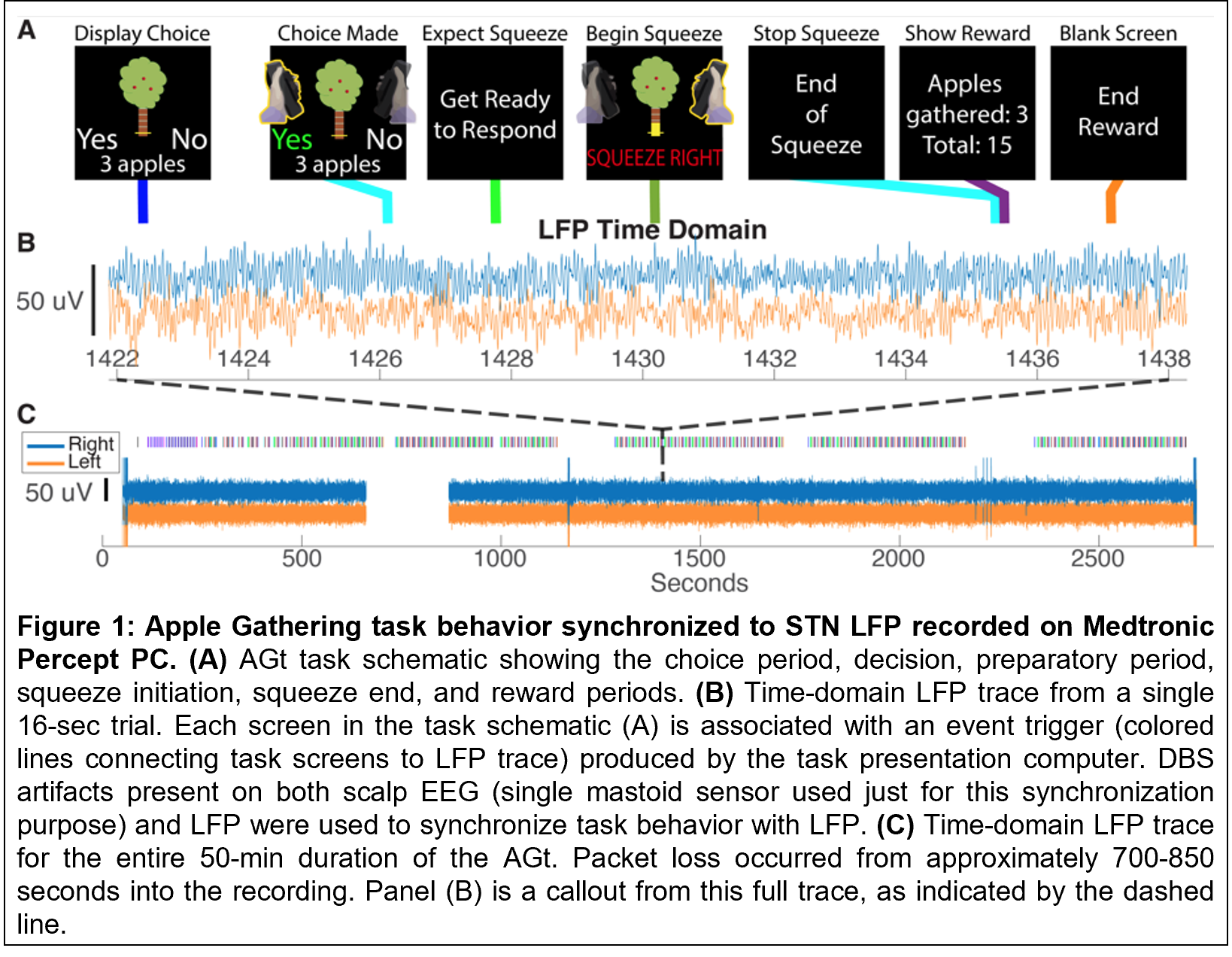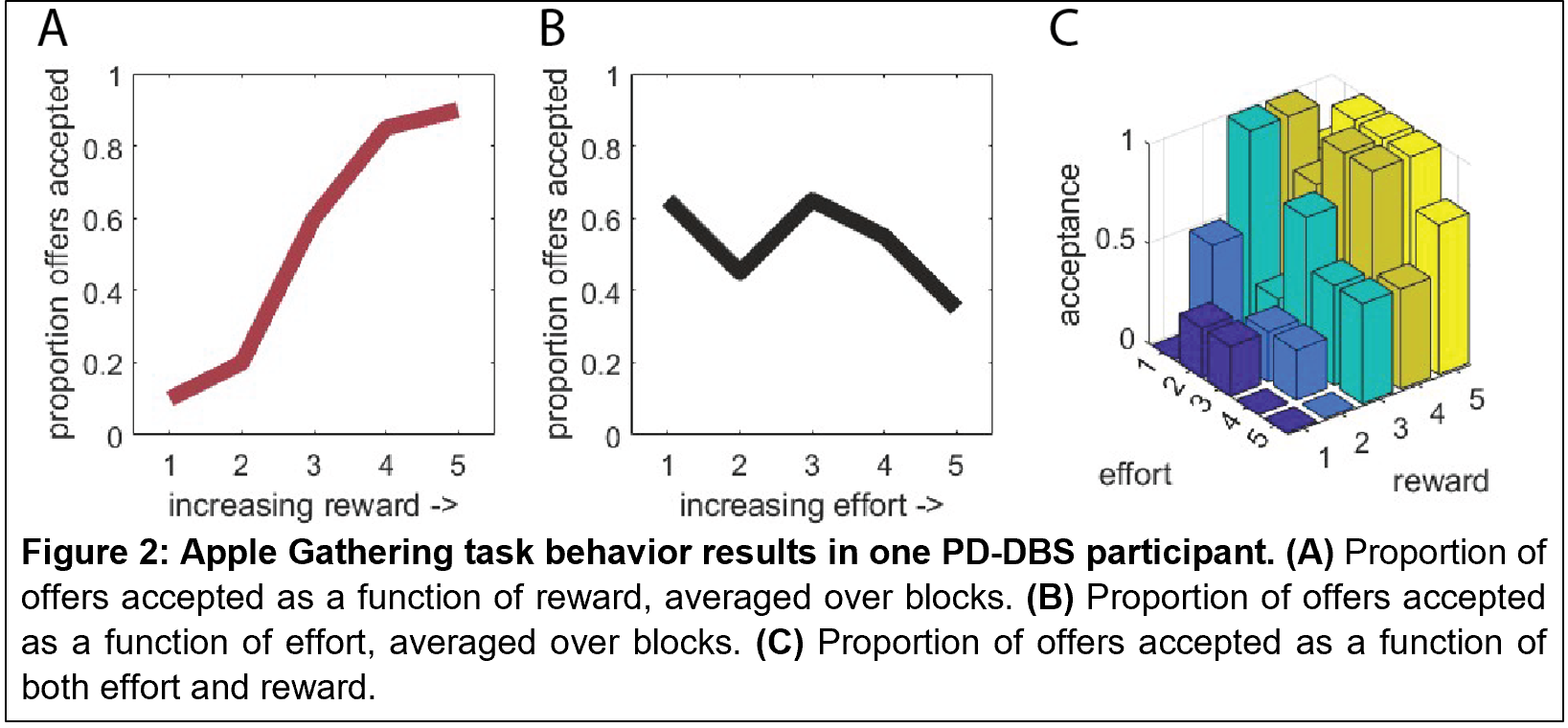Category: Parkinson's Disease: Neurophysiology
Objective: To investigate neural correlates of motivated, goal directed behavior within the basal ganglia.
Background: Apathy is a common and debilitating complication of Parkinson’s disease (PD), but neither physical nor neural markers of apathy are well established. Effort-based decision-making (EBDM) paradigms provide a rigorous framework to study deficits of motivation, as they allow precise control of stimuli, quantification of behavior, and continuous modeling of decision-making processes. Recently available sensing-capable DBS devices can be used to stream time-domain local field potential (LFP) recordings while subjects perform such tasks. Here, we describe our initial results studying the neurophysiological correlates of motivated behavior in a PD-DBS patient during an EBDM task.
Method: We recorded LFPs via a DBS system targeting the subthalamic nucleus throughout the completion of an EBDM task, the apple gathering task, during which a subject decides whether to exert physical effort for monetary rewards. After a training block, five levels each of reward and effort were combined for 100 trials across 4 blocks. We devised a system to synchronize task behavior to LFP using task-triggered event markers [figure1]. Stimulation was turned on and off before and after the task to generate stimulation artifacts on both LFP and EKG that were used for data synchronization.
Results: Both changing effort and reward levels modulated choice on the behavioral task [figure 2]. Synchronization between task and LFPs was maintained across the experiment. We found that the proportion of offers accepted increased parametrically with increasing reward and decreased with increasing effort [figure2]. The mean decision time to accept or reject a trial was 3.78 ± 2.43 seconds. Additional analyses will focus on evaluating the correlations between task dynamics and LFP spectral power.
Conclusion: We describe the use of a DBS system to record time-locked neural activity during an EBDM task and thus study the neural correlates of goal directed behavior in PD. Applying this data data-driven approach at a large scale will allow the identification of neural features related to task performance metrics such as effort and reward valuation associated with motivated behaviors. These neural biomarkers have the potential to enable adaptive control of stimulation parameters based on non-motor symptoms of PD, including apathy.
To cite this abstract in AMA style:
N. Provenza, S. Rajesh, N. Diab, S. Reddy, B. Lamichhane, A. Sabharwal, J. Herron, Y. Gazes, C. Le Heron, S. Sheth, N. Vanegas-Arroyave. Identifying neural biomarkers of motivated behavior in Parkinson’s disease using sensing-capable DBS devices [abstract]. Mov Disord. 2023; 38 (suppl 1). https://www.mdsabstracts.org/abstract/identifying-neural-biomarkers-of-motivated-behavior-in-parkinsons-disease-using-sensing-capable-dbs-devices/. Accessed February 9, 2026.« Back to 2023 International Congress
MDS Abstracts - https://www.mdsabstracts.org/abstract/identifying-neural-biomarkers-of-motivated-behavior-in-parkinsons-disease-using-sensing-capable-dbs-devices/


